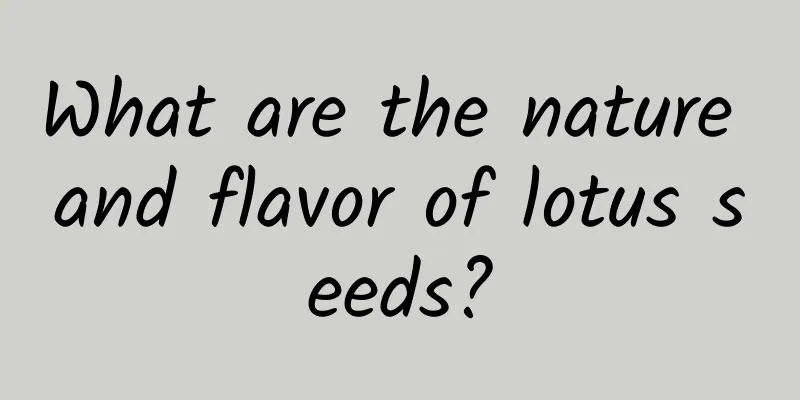The efficacy and function of yellow heart fruit

|
Traditional Chinese medicine has always been the best choice for many people to treat diseases. Traditional Chinese medicine is very helpful in treating diseases, and you can rest assured when choosing it. Today we will introduce a traditional Chinese medicine, yellow heart fruit. [Alias] Crooked-necked fruit, yellow bud fruit, peeled fruit, sour fruit, large-leaf garcinia, Yunnan mangosteen. [Source] Medicinal material source: the stems and leaves of Mangosteen yunnanensis of the Garcinia family. [Original form] Yunnan bamboo is an evergreen tree, 8-12m tall. The trunk is erect, the crown is conical, the branches are slender and numerous, the tips usually drooping, dark gray, with longitudinal stripes, and glabrous. Simple leaves are opposite; petiole is up to 1 cm long; leaf blade is lanceolate or oblong, 6-14 cm long, 3-5 cm wide, apex acuminate or caudate, base cuneate, margin entire, dark green beneath, glabrous on both sides; midrib is sunken above, raised beneath, with more than 8 lateral veins on each side, and reticulate veins obvious on both sides. Flowers are unisexual and dioecious; there are 3-8 male flowers, terminal or axillary, arranged in an umbel; pedicel 4-8mm long; 4 sepals, ovate, fleshy, yellow; 4 petals, yellow, oblong, about twice as long as sepals; many stamens, filaments fused into a bundle, the stalk is capitate, and there is no reduced pistil; female flowers are usually solitary in the leaf axils, larger than male flowers; pedicel is thick, 2-3mm long; the lower half of the reduced stamens are fused, surrounded by the base of the ovary, and the filaments are either long or short; the ovary is nearly spherical, with 4-8 chambers, and the stigma is radiant with nipple-like glands. The berries are large, like small oranges, dark yellow, with 4-8 grooves on the outside, flattened on top, and have a milky top. The flowering period is from March to May, and the fruiting period is from July to October. 【Habitat distribution】Ecological environment: Grown in tropical monsoon forests. [Chemical composition] The stem contains 1,3,6-trihydroxy-7-methoxy-8-geranylxanthone, cowaxanthone (i.e. 1,3,6-trihydroxy-7-methoxy-8-geranylxanthone), and cowanin (i.e. 1,3,6-trihydroxy-7-methoxy-2-geranylxanthone). 【Nature and flavor】 Bitter; astringent; cool; poisonous 【Functions and indications】 Clears away heat and detoxifies; expels parasites. Mainly used for eczema, stomatitis, periodontitis, carbuncle ulcer, burns, leeches in the nose [Usage and Dosage] For external use: take appropriate amount, decoct in water for washing, or gargle; or squeeze the fresh juice and drip into the nose. [Note] The juice from the stems and leaves is poisonous and can cause severe diarrhea if taken internally. It is prohibited to take it. 【Excerpt】 Chinese Materia Medica The above introduces the relevant common knowledge about yellow heart fruit. In order to let more people know about yellow heart fruit, you can accumulate more related things in your daily life, which will play an important role in maintaining our health. |
<<: The efficacy and function of Huangwawei
>>: The efficacy and function of Elsholtzia odorifera
Recommend
Circana: 2024 U.S. Holiday Purchase Intentions Report
U.S. consumers’ plans for the 2024 holiday season...
Top 10 Chinese medicines for treating polyps
Hoarseness is common. One of the most common caus...
The efficacy and function of Dryopteris bicolor
With the development of society and the close int...
How to make donkey hide gelatin paste
Donkey-hide gelatin paste is a common Chinese med...
The efficacy and function of crape myrtle bark
In daily life, people are not only very familiar ...
What is true intelligence? In 2024, let yourself be a little more "dull"!
Think back, in the past year, have you often toss...
Tesla Optimus, orthopedic expert, silver-haired partner... This robot conference is full of useful information! Take a sneak peek!
On the morning of August 21, 2024 World Robot Con...
“Irradiated food” is related to radiation. Is it harmful to the human body if eaten?
Myth: "'Irradiated food' is related ...
The "elegant" dinosaur with a long neck is the "last survivor" spanning two eras
Editor's note: In the long history of life on...
The efficacy and function of silver silk eucommia
Silver-thread Eucommia ulmoides is a very nutriti...
Cordyceps sinensis health wine recipe
Nowadays, with the continuous improvement of the ...
If we travel back to ancient times, what vegetables and fruits can we eat?
Although there was no nutritional guidance in anc...
Seeing too much, China's Sky Eye poses a problem for scientists
"The main challenge facing the China Sky Eye...
The efficacy and function of hawthorn
Traditional Chinese medicine has always been the ...









